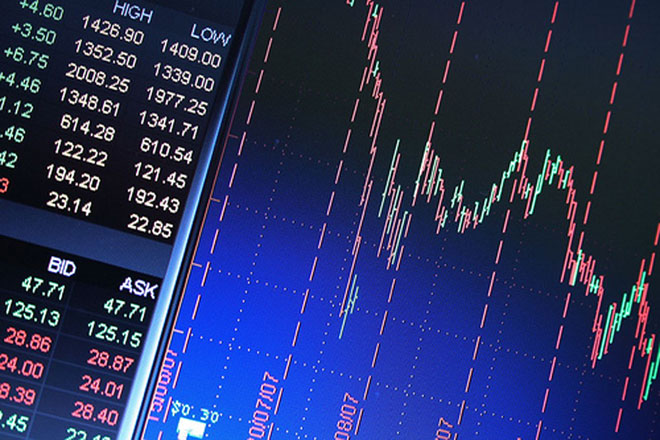European stocks ended a turbulent trading week Friday by chalking another round of sharp falls amid renewed fears that the United States' top credit rating might be downgraded and concerns that Europe's debt crisis could spread to Spain and Italy, DPA reported.
After initially rising following the release of better-than-forecast US jobs data, shares in Europe and the US retreated as investors again cashed in their shares.
And while stocks in New York seesawed, the European benchmark Stoxx 600 share index ended its eighth day of losses down a hefty 1.76 per cent at 238 points after shares across Europe tumbled to their lowest level in more than a year.
The Stoxx 600 is down 10 per cent on the week after falling by about 3 per cent following a chaotic start to the Friday trading session, with analysts warning that share markets faced further volatility.
Several European bourses posted even bigger falls, with shares in London and Frankfurt closing down about 2.7 per cent. Stocks in Paris slumped 1.26 per cent.
Called a bloodbath by traders, the sell-off of European shares followed big falls on Wall Street as well as across Asia over the previous 24 hours.
This came amid worries about the risks of the debt crisis spreading to other members of the 17-state eurozone, such as Italy and Spain, a slump of investor confidence and fears that the world economy could tip back into recession.
It was a "poisonous cocktail," Commerzbank analysts said in a report to clients.
The turmoil on share markets prompted investors to seek refuge in safe-haven investments, with the Swiss franc soaring to an all-time high against the euro at one point on Friday and the price of gold climbing by 0.5 per cent to 1,656 dollars an ounce.
Despite the share market turbulence, the euro remained relatively stable, edging up 0.7 per cent to about 1.42 dollars in afternoon trading in Europe.
The price of oil also sunk 2 per cent to 84.89 dollars a barrel on the back of concerns about energy demand caused by the uncertainty that has taken hold in the markets.
After a buoyant start to the year for the world economy, a recent stream of downbeat data has confirmed economists' expectations that growth slowed during the three months ended June.
Analysts said this has triggered a shift in global investor sentiment to an increasingly pessimistic stance and stoked fears of the US economy tipping back into recession.
The growth fears have coincided with moves by governments around the world to wind back high debt levels built up during the 2009 recession.
The leaders of Germany, France and Spain - Angela Merkel, Nicolas Sarkozy and Jose Luis Rodriguez Zapatero - planned to interrupt their holidays late on Friday to hold telephone conferences about the market tensions.
As concerns have grown about the European leaders' ability to contain the debt crisis, both Italy and Spain have been hit by sharp rises in borrowing costs.
Indeed, instead of a financial crisis driving turbulence on share markets, as was the case in 2008 and 2009, analysts say a political crisis is undercutting investor confidence.
The bleak mood on markets was compounded by a warning on Thursday by European Commission President Jose Manuel Barroso that other eurozone states might fall to the eurozone debt crisis, which has already claimed Greece, Ireland and Portugal as its victims.
Markets were also wrong-footed by the European Central Bank's decision to reactivate its government bond buying programme Thursday to purchase a small amount of Irish and Portuguese debt rather than Italian and Spanish government bonds.
Data released Friday showed Spain and Italy remaining on albeit weak economic growth course during the second quarter.






